Related Research Articles
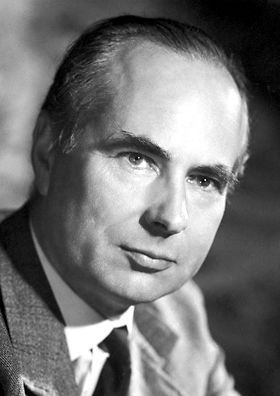
Sir Andrew Fielding Huxley was an English physiologist and biophysicist. He was born into the prominent Huxley family. After leaving Westminster School in central London, he went to Trinity College, Cambridge on a scholarship, after which he joined Alan Lloyd Hodgkin to study nerve impulses. Their eventual discovery of the basis for propagation of nerve impulses earned them the Nobel Prize in Physiology or Medicine in 1963. They made their discovery from the giant axon of the Atlantic squid. Soon after the outbreak of the Second World War, Huxley was recruited by the British Anti-Aircraft Command and later transferred to the Admiralty. After the war he resumed research at the University of Cambridge, where he developed interference microscopy that would be suitable for studying muscle fibres.

Torsten Nils Wiesel is a Swedish neurophysiologist. With David H. Hubel, he received the 1981 Nobel Prize in Physiology or Medicine, for their discoveries concerning information processing in the visual system; the prize was shared with Roger W. Sperry for his independent research on the cerebral hemispheres.
Autar Singh Paintal was a medical scientist who made pioneering discoveries in the area of neurosciences and respiratory sciences. He is the first Indian Physiologist to become the Fellow of the Royal Society, London.

Sir Colin Blakemore,, Hon was a British neurobiologist, specialising in vision and the development of the brain. He was Yeung Kin Man Professor of Neuroscience and senior fellow of the Hong Kong Institute for Advanced Study at City University of Hong Kong. He was a distinguished senior fellow in the Institute of Philosophy, School of Advanced Study, University of London and Emeritus Professor of Neuroscience at the University of Oxford and a past Chief Executive of the British Medical Research Council (MRC). He was best known to the public as a communicator of science but also as the target of a long-running animal rights campaign. According to The Observer, he was both "one of the most powerful scientists in the UK" and "a hate figure for the animal rights movement".

Sir John Henry Gaddum was an English pharmacologist who, along with Ulf von Euler, co-discovered the neuropeptide Substance P in 1931. He was a founder member of the British Pharmacological Society and first editor of the British Journal of Pharmacology.
Barry John Everitt, is a British neuroscientist and academic. He was Master of Downing College, Cambridge (2003–2013), and Professor of Behavioural Neuroscience at the University of Cambridge (1997–2013). He is now emeritus professor and Director of Research. From 2013 to 2022, he was provost of the Gates Cambridge Trust at Cambridge University.

Geoffrey Burnstock was a neurobiologist and President of the Autonomic Neuroscience Centre of the UCL Medical School. He is best known for coining the term purinergic signalling, which he discovered in the 1970s. He retired in October 2017 at the age of 88.
Prem Narain Saxena was the Founder Professor and Chairman of the Department of Pharmacology, Jawaharlal Nehru Medical College, India. He made several notable contributions to the fields of traditional medicine and neuropharmacology. His demonstration of the wound-healing property of Curcuma longa was a major contributor to India's successful challenge of the US patent on the wound-healing property of Haldi. He was intimately involved in discovery and pre-clinical development of the non-barbiturate hypnotic Methaqualone. His basic studies have helped in understanding the role of various neurotransmitters in thermoregulation. He also standardized the use of Setaria cervi for discovery of new anti-filarial agents.
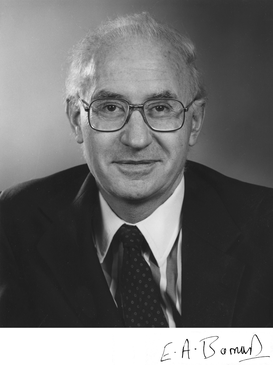
Eric Albert Barnard was a British neuroscientist, and Professor at University of Cambridge.
Graham Leon Collingridge is a British neuroscientist and professor at the University of Toronto and at the University of Bristol. He is also a senior investigator at the Lunenfeld-Tanenbaum Research Institute, Mount Sinai Hospital in Toronto.

Stuart Graham Cull-Candy is a British neuroscientist. He holds the Gaddum Chair of Pharmacology and a personal Chair in Neuroscience at University College London. He is also a member of the Faculty of 1000 and held a Royal Society - Wolfson Research position.

Susan G. Amara is an American professor of neuroscience and is the Scientific Director of the National Institute of Mental Health. Dr. Amara is an elected member of the National Academy of Sciences and a fellow of the American Association for the Advancement of Science. She is a Past-President of the Society for Neuroscience. Dr. Amara has a B.S. in Biological Sciences from Stanford University and a Ph.D. in Physiology and Pharmacology from the University of California, San Diego.
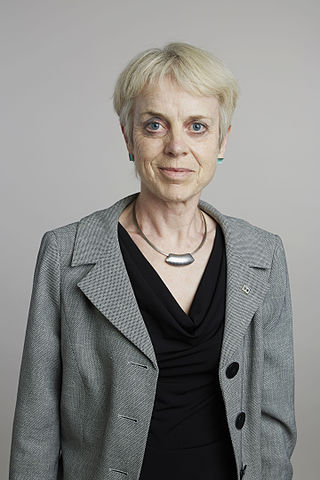
Annette Catherine Dolphin is a Professor of Pharmacology in the Department of Neuroscience, Physiology and Pharmacology at University College London (UCL).
Richard Alan North FRS is a British biomedical scientist, and Professor Emeritus at the University of Manchester. North grew up in Halifax, West Yorkshire and attended Heath Grammar School, before studying at University of Aberdeen. He graduated in medicine and in physiology (BSc). He took a PhD in the group of Hans Walter Kosterlitz, and worked in Aberdeen hospitals as house office and registrar.
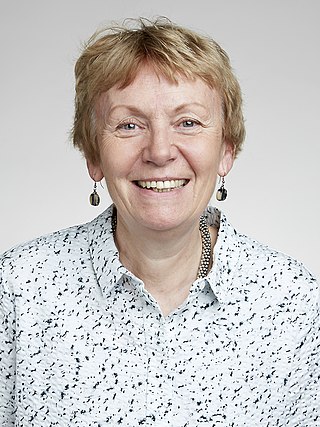
Maria Fitzgerald is a professor in the Department of Neuroscience at University College London.

David Lodge is a research fellow in the Department of Physiology and Pharmacology at the University of Bristol.
The Department of Pharmacology at the University College London, the first of its kind in England, was founded in 1905 and remained in existence until 2007.
Anne Jennifer Morton,, known as Jenny Morton, is a New Zealand neurobiologist and academic, specialising in neurodegenerative diseases. She has been a Fellow of Newnham College, Cambridge, since 1991 and a Professor of Neurobiology at the University of Cambridge since 2009. Her current research is focused on Huntington's disease, and she is using sheep as a large animal model for the disease. This research has led her to discover that sheep can recognise human faces.
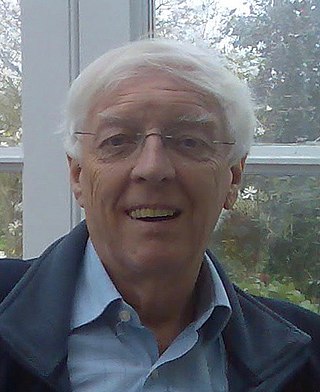
John Haven Coote was a British physiologist. He was the Bowman Professor of Physiology (1983–2003) then Professor Emeritus at the University of Birmingham. He was a Visiting Professor at University of Leicester and a Consultant in Applied Physiology, Royal Air Force Institute of Aviation Medicine.
Betty Ida Roots was a British-born zoologist based at the University of Toronto in Canada. She was an elected fellow of the Royal Society of Canada.
References
- ↑ Page, Clive. "In memoriam: Professor David Brown | British Pharmacological Society". www.bps.ac.uk. Retrieved 1 November 2023.
- ↑ "David Brown | Royal Society". royalsociety.org.
- ↑ "David A. Brown Lab". University College London. Archived from the original on 29 February 2012. Retrieved 14 March 2013.
- 1 2 3 "David Brown - Faculty Profile at University College London website" . Retrieved 8 June 2022.